Highs and lows: Beauty giants report mixed economic impact amid COVID-19
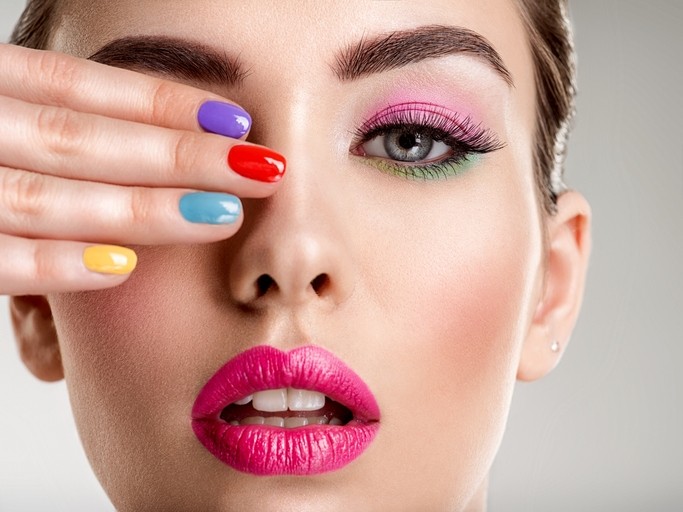
When the ongoing coronavirus (COVID-19) crisis started to truly take its grip across world markets earlier this year, beauty businesses across the globe went into ‘response’ mode.
And whilst most companies remain dedicated to responding – supporting charities and organisations worldwide through cash and product donations, restructuring manufacturing operations and safeguarding retail staff – the focus for many has now turned to long-term survival in a very different post-COVID world.
Economic impact cannot be underestimated
The lasting impact of this ongoing pandemic – a health, social and economic crisis combined – cannot be underestimated. With months of consumer lockdowns, international travel bans, and retail businesses shuttered, purchase and usage behaviour has changed dramatically across the beauty and personal care space and sales have fallen across many beauty segments.
Whilst the economic impact will hit beauty in its entirety, the swathes of small indie brands that make up a significant part of the global market could be hit hardest – a real cause for concern, according to CosmeticsEurope director-general John Chave. And a look at how the mega-conglomerates of the cosmetics world are faring amidst it all starts to unveil the expanse of economic disruption that has, and will continue, to take its toll on beauty.
Here, CosmeticsDesign-Europe looks at how COVID-19 impacted first quarter (Q1) results across the world’s beauty giants.
Personal care power? Colgate-Palmolive and Johnson & Johnson sit strong
Two of the world’s largest personal care companies, Colgate-Palmolive and Johnson & Johnson, both reported Q1 sales growth, despite the ongoing COVID-19 crisis.
Colgate-Palmolive totted up net sales of €3.75bn ($4.09bn) for the quarter, up 5.5% on the previous year, and reported growth across every global region. The personal care giant generated a total net income of €655m ($715m) for Q1, up 28% on the previous year, with sales particularly strong in Europe where the company registered a net sales rise of 12%.
Colgate-Palmolive president and CEO Noel Wallace said the company had thrived in such a difficult time because it was “at the heart, a local company with global brands and strategies and best-in-class execution”. Wallace said the strong results also reflected the “dedication, creativity and courage” of its teams and proved “just how agile” the business had become.
During the ongoing crisis, Colgate-Palmolive saw a spike in sales of Palmolive liquid hand soap and Sanex body wash, along with interest in its premium toothpaste innovation in the UK.
Johnson & Johnson also reported a significantly strong Q1 despite the crisis. The personal care major pulled in sales of €18.9bn ($20.7bn) for the quarter, registering a total net income of €5.3bn ($5.89bn) – up 54% on the previous year. Its consumer health division, featuring the Neutrogena, Aveeno, Johnson’s and Listerine brands, generated €3.3bn ($3.625bn) in sales for Q1, up 9.2% on the previous year.
Johnson & Johnson chairman and CEO Alex Gorsky said the company was “built for times like this”, with such strong results just one reflection of the company’s sustainable business model. Johnson & Johnson, Gorsky said, had four main “pillars of strength” – its equal commitment to performance and purpose; being a broadly-based healthcare company; its scientific expertise; and global operational scale and capabilities.
During the COVID-19 crisis, Johnson & Johnson saw particularly strong growth across skin health, oral care and women’s health.
A mixed bag – P&G beauty suffers, Unilever flat and Beiersdorf dips
European-headquartered consumer goods giant Procter & Gamble (P&G) reported mixed financials across its home, healthcare and beauty divisions for the third quarter of fiscal 2020.
The conglomerate tallied up net sales of €15.82bn ($17.2bn) across its entire business, up 5% on the previous year, driven by a net sales rise of 8% in fabric and homecare; a 7% rise in healthcare; and 6% rise in baby, feminine and family care. Net sales in beauty and grooming, however, were down 1% and 3%, respectively for the quarter.
P&G vice chairman, COO and CFO Jon Moeller said sales in beauty were largely down due to the impact felt from travel retail closures – a segment that represented around $1bn in business for the company.
“We have never faced a complete shutdown of very important channels of commerce, whether that’s travel retail, whether that’s the electric channel in Europe, whether that’s a specialty beauty channel. So, there’s a huge amount of volatility that we’re likely to experience and we’ll learn more every day,” Moeller said.
P&G’s super-premium Japanese SK-II cosmetics brand saw a sharp decline in sales (more than 20%) because of travel retail disruption and store closures across Asia.
The other big consumer goods giant in beauty, Unilever, reported flat sales for Q1, though reported that its beauty and personal care turnover had risen by almost 2%.
The consumer goods major totted up €12.4bn in turnover for the quarter, up just 0.2% on the previous year, and generated €5.3bn in turnover across beauty and personal care – its largest division – a growth of 1.8% on the previous year.
Unilever said strength in this division had been underlined by “both consumption and household stocking”.
Unilever CEO Alan Jope said: “Our portfolio, our financial stability and the quality of our leadership teams around the world mean that Unilever is well-positioned during this crisis and for the challenging world that will come afterwards.”
The company saw particularly strong sales on its flagship antibacterial soap brand Lifebuoy and a strong performance from Vaseline.
International skin care major Beiersdorf reported a slight dip in sales for Q1, though its European business was hit harder.
Beiersdorf generated €1.9bn in sales across the entire group for Q1, down 1.9% on the previous year, and €1.58bn in sales across its consumer business segment, down 1% on the previous year. Europe registered a sales decline of 6.6%, with €750m generated for the quarter.
Beiersdorf CEO Stefan De Loecker said the results were “as expected” given the ongoing COVID-19 pandemic but that the company was certain it could overcome hurdles.
“The further development of this crisis is still difficult to predict. It may be that the situation worsens before things pick up again, but I can clearly state one thing today: Beiersdorf’s foundations are strong,” De Loecker said.
The skin care major had been particularly hard hit in travel retail where its La Prairie brand saw sales drop 35.8% in Q1. Its core skin care brand Nivea remained steady overall, with a sales dip of just 0.6%.
Beauty bites! L’Oréal drops, Shiseido and Amore Pacific plummet
International cosmetics major L’Oréal reported an overall drop in worldwide sales, owing to the ongoing coronavirus crisis, though business in China for the quarter had returned to growth.
The beauty major generated €7.22bn sales for Q1, down 4.8% on a like-for-like basis on the previous year. The company reported particularly sharp declines in Western Europe, with sales down 7.7% at €1.9bn. Sales were also down 4.8% in North America and 3.7% in Asia Pacific, though sales in China surged 6.4% for the quarter.
L’Oréal chairman and CEO Jean-Paul Agon said every geographical zone had been progressively impacted by the closure of outlets and introduction of lockdown measures during the coronavirus crisis, though China had shown recovery.
“In an environment that is evolving every day, lockdown measures will clearly continue to have a significant impact on the consumption of skin care and beauty products, and consequently on our business in the second quarter. However, as the example of China has shown, the current situation does not call into question consumers’ strong appetite for beauty products, which remains intact,” Agon said.
L’Oréal’s Luxe and Professional Products divisions had been heavily impacted for Q1, down 9.3% and 10.5%, respectively, though makeup was the “most affected” category in its portfolio, with a temporary slowdown for Maybelline New York and NYX Professional Makeup.
J-beauty giant Shiseido Company reported a net sales drop of 15.8% for the first quarter, with net profit plummeting 95.8%. Losses were reported across all geographical locations of its business, but its home market Japan was hardest hit, with net sales down 21.2% YoY.
“The global spread of COVID-19 is causing stagnation in consumer purchases and business economic activities. Going forward, business results are still subject to uncertainties, such as the viral spread and the timing of resumption of economic activities depending on regulatory measures taken by each country,” Shiseido said.
The company’s prestige and cosmetics divisions had been most impacted during the crisis.
Fellow APAC beauty major Amorepacific also reported losses for Q1 due to COVID-19, with sales down 22% and operating profit plummeting 67%. Its home market South Korea was particularly badly affected, with sales falling 19% for the quarter.
The company said it planned to reinforce digital efforts to improve overall 2020 earnings and withstand the impact of the ongoing coronavirus crisis. “Amorepacific has laid the foundation for securing and growing competitiveness in digital channels,” the company said.
*For our latest look at how beauty financials have fared amidst COVID-19, take a look at our 'six months on' update, compiled in November 2020.
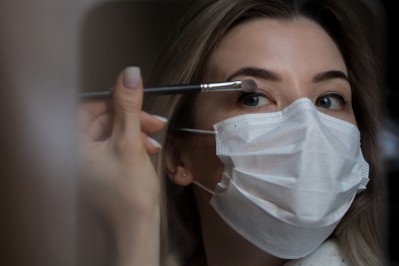
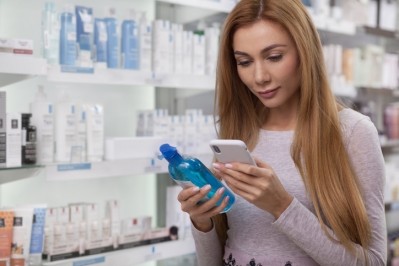
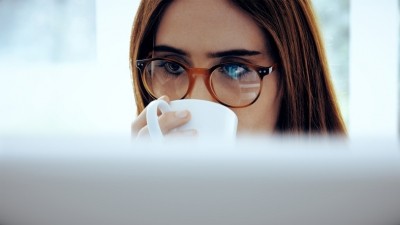
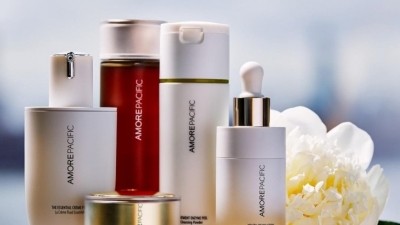
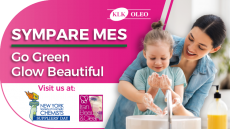

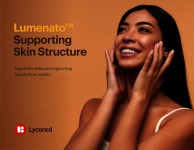
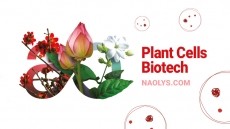



![Lubrizol has extended its partnership with C-beauty major PROYA. [PROYA]](/var/wrbm_gb_food_pharma/storage/images/_aliases/wrbm_tiny/publications/cosmetics/cosmeticsdesign-asia.com/headlines/brand-innovation/lubrizol-bullish-on-potential-of-c-beauty-growth-potential/17362515-1-eng-GB/Lubrizol-bullish-on-potential-of-C-beauty-growth-potential.jpg)

![Amika is targeting localised innovation to drive success in SEA. [Amika]](/var/wrbm_gb_food_pharma/storage/images/_aliases/wrbm_tiny/publications/cosmetics/cosmeticsdesign-asia.com/headlines/brand-innovation/amika-on-quest-to-address-diverse-hair-needs-in-sea-with-sea-buckthorn-range/17339003-1-eng-GB/Amika-on-quest-to-address-diverse-hair-needs-in-SEA-with-sea-buckthorn-range.jpg)

![Latest developments from the South Korean beauty market. [Getty Images]](/var/wrbm_gb_food_pharma/storage/images/_aliases/wrbm_tiny/publications/cosmetics/cosmeticsdesign-asia.com/article/2024/04/19/korean-wave-able-c-c-kolmar-and-more-in-this-k-beauty-round-up/17357973-1-eng-GB/Korean-wave-Able-C-C-Kolmar-and-more-in-this-K-beauty-round-up.jpg)



